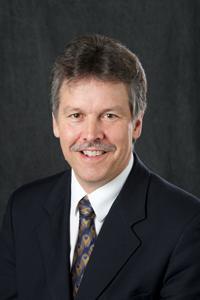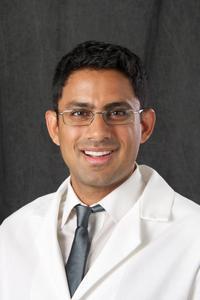Leadership
|
|
|
|
George Richerson, MD, PhD |
Kumar Narayanan, MD, PhD |
Program Description
Physician scientists play a key role in current biomedical research due to their ability to integrate knowledge derived from clinical activities with experimental observations in the laboratory. In recognition of the importance of this role, we offer the Clinical Neuroscientist Training Program (CNS-TP), which integrates post-graduate research and clinical training through residency and fellowship. The CNS-TP adheres to the principles of Flexible Training in Neurology (Engstrom, JW Ann Neurol, 61(1):7-8, 2007 (PMID: 17262849)) proposed by the American Neurological Association, and is designed to fully utilize the resources of the Department of Neurology, Interdisciplinary Graduate Program in Neuroscience and University of Iowa Carver College of Medicine. The NINDS and the University of Iowa have had considerable success in increasing funding for neurologist-scientists and in shortening the time between residency and K/R grants (https://pubmed.ncbi.nlm.nih.gov/39099460/).
The University of Iowa Neurology Residency Program offers the CNS-TP pathway for selected trainees, with an individualized and flexible postgraduate training program that spans the four-year residency. Trainees also have the option of a guaranteed fellowship/postdoctoral training with any faculty member at the University of Iowa for up to two additional years. The program is designed for physicians interested in pursuing a career in academic neurology who have already demonstrated interest and proficiency in biomedical research. The competitive CNS-TP candidate will hold the MD or DO degree, with or without a PhD, and show clear evidence of a strong desire to pursue an academic career in clinical neuroscience or clinically-relevant basic neuroscience – typically manifest as a strong record of scientific publication.
Candidates who enter the program will enjoy close mentorship from leading neuroscientists at the University of Iowa, matched on the basis of their specific career interests. Candidates will undergo training with flexibility to facilitate the integration of clinical rotations and research activities and may be eligible for pilot funding for laboratory support on the basis of demonstrated need. The ultimate goal of the CNS-TP is to foster the career development of trainees by facilitating their transition to independent physician-scientists, and to make them competitive for a K award, an RO1, or other funding mechanism. The scientific training will not be made at the expense of clinical training, and the rotation schedule will be such that their fellow residents will not have their schedules adversely affected.
The infrastructure for basic, clinical, and translational research at Iowa is broad and the commitment to biomedical and neuroscience research is strong. The CNS-TP resident will benefit from various programs and laboratories of the University of Iowa Carver College of Medicine, including the Interdisciplinary Graduate Program in Neuroscience, the Iowa Medical Scientist Training Program, the Institute for Clinical and Translational Science, the Physician Scientist Training Pathway, the Pappajohn Biomedical Institute, the Center for Gene Therapy, and the NIH-funded Pain Training Program, among many others. Trainees will also benefit from outstanding Core Research Facilities that provide state-of-the-art research resources to facilitate biomedical research and the Office of Postdoctoral Scholars that serves as the administrative home for postdoctoral scholars and fellows at the University of Iowa. The CNS-TP receives funding support from the NIH R25 program.
The Clinical Neuroscientist Training Program at a Glance
- An enhanced interview experience, including meetings with key Iowa scientific leadership
- CNS-TP residents have up to eight months of elective time to pursue research dispersed throughout PGY2 – PGY4. We will work with CNS-TP residents to structure their schedule to balance research and educational goals.
- Potential for pilot funding, contingent upon demonstrated need, as well as adequate academic progress and achievement of specific benchmarks (see Table below)
- Personal career mentoring from onset of the program
- Networking with other University of Iowa professional development programs (Medical Scientist Training Program, Interdisciplinary Graduate Program in Neuroscience, Office of Postdoctoral Scholars) through journal clubs, research days, and ad hoc gatherings
- We have a close relationship with Iowa's Physician-Scientist Training Pathway, which is administered by Internal Medicine. Our CNS-TP residents often participate heavily in the PSTP program and its activities. CNS-TP residents in Neurology do not need to apply to the PSTP and can get involved after matching at the University of Iowa.
- Upon graduation, all qualifications for American Board of Psychiatry and Neurology eligibility will be met
- Potential funding for post-graduate research fellowship in selected field of interest
- Progress will be reviewed yearly by June 1st
PGY-1
- Select research mentor
PGY-2
- Decide on NINDS R25 (UE5) candidacy with Dr. Narayanan and Dr. Richerson
- Define specific aims for research project
- Deliver a lecture on research proposal at CNS-TP seminar
- Submit full written research proposal (1-2 pages)
PGY-3
- September 1: NINDS R25 (UE5) program: 4-page research strategy + letter from the mentor due internally
- October 1: Dr. Richerson and Dr. Narayanan submit NINDS R25 (UE5) application and progress report
- Refine specific research aims
- Collect preliminary data
- Deliver a lecture at CNS-TP seminar
PGY-4
- October 1: If NINDS R25 (UE5) funded, submit 3-page progress report
- Continue to collect data and refine specific aims
- Deliver a Grand Rounds lecture
- Write and submit a grant (e.g. K08, K99)
Optional PGY-5
- October 1: If NINDS R25 (UE5) funded, submit 3-page progress report
- If competitively funded by the R25, 18 months postdoctoral research in any lab of your choice at NIH R25, including the University of Iowa
- Continue to collect data and refine specific aims
- Resubmit grant if necessary
Optional PGY-6
- Submit a strong K-equivalent or R-equivalent grant in order to be eligible for last 6 months of funding
- Continue to collect data and refine specific aims
- Resubmit grant if necessary
Applying to the CNS-TP
It is required that all NINDS R25 (UE5) funded individuals attend monthly CNS-TP seminars, quarterly ethics zoom calls, and annual national R25 (UE5) meetings.
- Interest in the CNS-TP can be expressed upon application to the residency program by emailing the Program Director of the Neurology Residency. While less desirable, candidates can apply for admission as late as the beginning of the PGY2 year.
- Candidates must apply through ERAS and match through the NRMP match.
- Selection will be made on a competitive basis by evaluation of prior accomplishments in a research program and clear evidence of interest in a career as a physician-scientist.
Members of the CNS-TP
- Frida Teran-Garza, MD, PhD – Class of 2027
- Aysegul Gezer, DO, PhD – Class of 2025
- Nicholas Wasko, MD, PhD – Class of 2025
- Kaancan Deniz, MD – Class of 2024
- 2024-25 at UCSF for behavioral neurology fellowship and postdoctoral work
- Guanghao “Max” Liu, MD, PhD – Class of 2024
- 2024-25 at WashU for R25 fellowship and postdoctoral work
- NINDS R25
- Oday Halhouli, MD – Class of 2023
- Mark Dougherty, MD – Class of 2025 in Neurosurgery
- NINDS R25
- F32
- Faisal Fecto, MD, PhD – Class of 2019
- NINDS R25 in Neuromuscular Medicine Fellowship, Stanford University
- Instructor, Neurology and Neurological Sciences, Stanford University
- Johnson Zhang, MD, PhD – Class of 2018
- R01 pending (2024)
- NINDS R25 Funded Fellowship in Movement Disorders at the University of Iowa
- R03
- Associate in Neurology, University of Iowa Department of Neurology
- Faculty member, University of Iowa Department of Neurology
- Georgina Aldridge, MD, PhD – Class of 2017
- NINDS R25 Funded Fellowship in Cognitive Neurology & Basic Neuroscience at the University of Iowa
- K08 & R01
- Faculty member, University of Iowa Department of Neurology
- Alberto Serrano-Pozo, MD, PhD – Class of 2017
- NINDS R25 Dementia Fellowship, Harvard/Massachusetts General Hospital
- K08
- Massachusetts Alzheimer’s Disease Research Center, MGH, Boston, MA
- Paloma Gonzalez-Perez, MD, PhD - Class of 2017
- K23
- NINDS R25 Neuromuscular Medicine Fellowship, Harvard/Brigham & Women’s Hospital
- Director, Muscle Disorder Clinic, Massachusetts General Hospital, Boston, MA
- Hannah Klein, MD, PhD – Class of 2016
- NINDS R25
- Child Neurology Residency, University of Iowa
- Epilepsy Fellowship, University of Colorado
- Epileptologist, Boys Town National Research Hospital, Omaha, NE
- Oliver Flouty, MD – Neurosurgery
- Jordan Schultz, PharmD
- NINDS K08
- Pharmacy faculty, University of Iowa
- NeuroNEXT fellowship, University of Iowa
2024-2025 Seminars
12/13/24 Kumar Narayanan – CNS-TP program overview
01/31/25 Asad Lak – R25 aims
02/7/25 Kai Rogers –K Aims
02/28/25 George Richerson – Conducting rigorous research
03/07/25 Nick Wasko – Fellowship / research goals
04/04/25 Details pending
05/2/25 Frida Teran-Garza – R25 aims
5/23/25 Details pending
5/30/25 Aysegul Gezer – Fellowship / research goals

